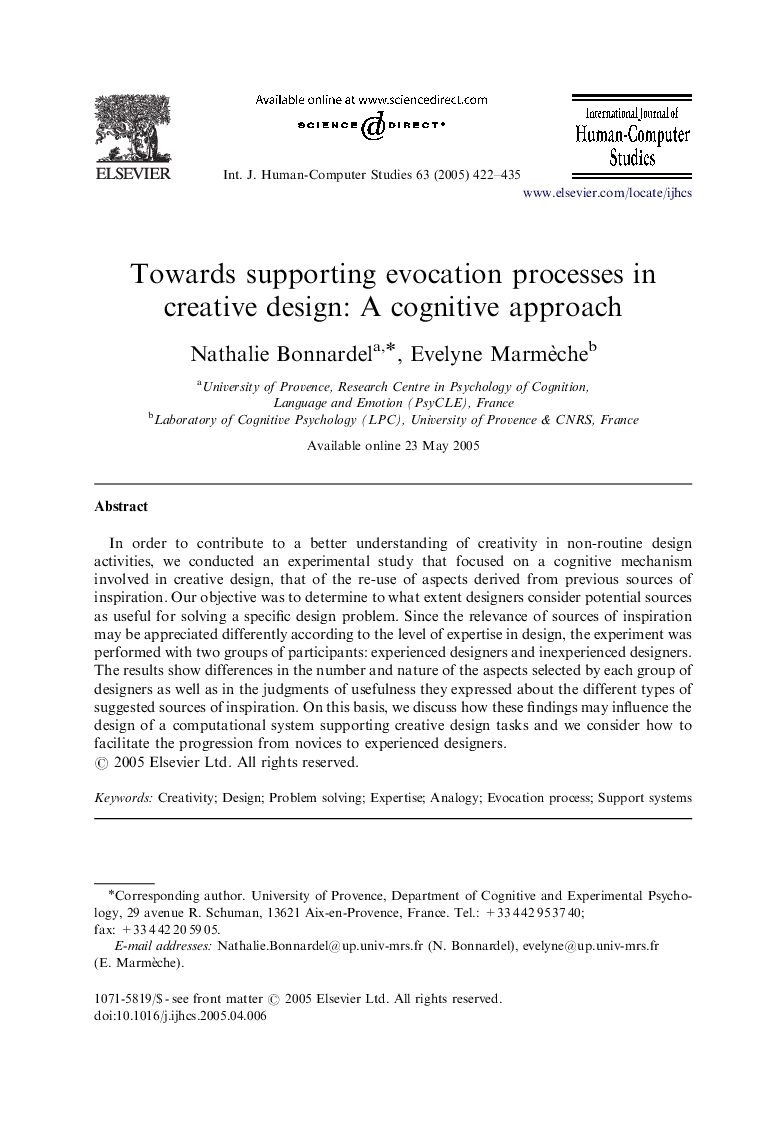| Article ID | Journal | Published Year | Pages | File Type |
|---|---|---|---|---|
| 9652473 | International Journal of Human-Computer Studies | 2005 | 14 Pages |
Abstract
In order to contribute to a better understanding of creativity in non-routine design activities, we conducted an experimental study that focused on a cognitive mechanism involved in creative design, that of the re-use of aspects derived from previous sources of inspiration. Our objective was to determine to what extent designers consider potential sources as useful for solving a specific design problem. Since the relevance of sources of inspiration may be appreciated differently according to the level of expertise in design, the experiment was performed with two groups of participants: experienced designers and inexperienced designers. The results show differences in the number and nature of the aspects selected by each group of designers as well as in the judgments of usefulness they expressed about the different types of suggested sources of inspiration. On this basis, we discuss how these findings may influence the design of a computational system supporting creative design tasks and we consider how to facilitate the progression from novices to experienced designers.
Related Topics
Physical Sciences and Engineering
Computer Science
Artificial Intelligence
Authors
Nathalie Bonnardel, Evelyne Marmèche,
